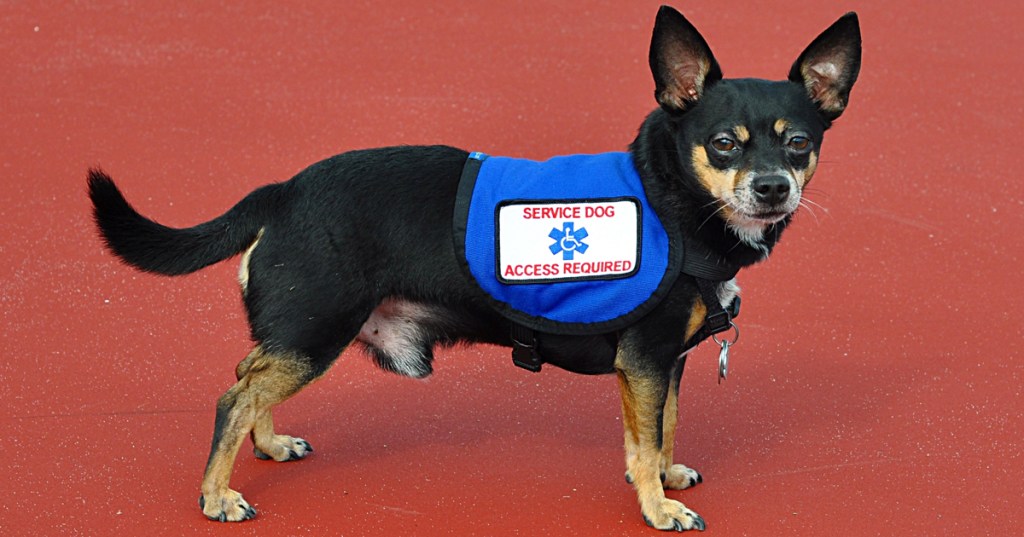When a friend was looking for a dog-friendly property rental, she, as so many people do, was having a hard time. Going to social media, she posted what she was looking for, along with a photo of her sweet senior mixed-breed dog, and a random stranger made a suggestion that seemed all too simple: “Just buy him a vest and tell people he is a service dog. Then they can’t turn you away.”
Simple? Yes. But also a federal crime.
And unfortunately, all too many people are breaking the law.
It’s true service dogs are protected under the Americans with Disabilities Act (ADA), and may live with their owners in homes where “pets” are not allowed, but not all dogs in vests are created equally. So what is the difference between those dogs you might see walking the aisles of the grocery store?
There are three general categories that exist for animals who typically accompany people in settings beyond those of your average pets:
Emotional Support Animals: ESAs may or may not be specially trained, but their purpose is to provide comfort for someone with a documented mental health condition.
Therapy Animals: These animals are typically evaluated and registered through an agency, and their purpose is to provide emotionally therapeutic value to those in need. Therapy animals have no additional rights under the ADA, but settings that do not typically allow pets, such as hospitals and schools, may permit them to visit through programs like Paws on a Mission or Reading With Rover.
Service Animals: These animals have been specially trained to perform tasks that their owner could not sufficiently perform on their own. For example, they may offer direction to a blind person walking in a busy street, or pick a specific fallen item off the ground for a person in a wheelchair. These animals are not required by law to wear vests, and under the ADA, a business may only ask two questions of the owner:
(1) is the dog a service animal required because of a disability, and (2) what work or task has the dog been trained to perform.
Legally speaking, only dogs and miniature horses may be considered service animals.
Whether a pet, a therapy animal, an emotional support animal, or a service animal, businesses have the right to expect the animal to be restrained (typically leashed except in cases where the disability prevents this) and not pose a threat to health or safety to other patrons. This includes not only disruptive behavior, such as growling or jumping up on people, but also acts that demonstrate the animal is not housetrained.
So, what is the big deal about putting one of those cute little vests on your pet dog to bring him to the mall with you?
Every time someone fakes a service dog, it puts the work of real service dogs in jeopardy. Trained service dogs provide assistance in everyday life to those who need it. The consequences are not just limited to a hostess asking your bouncy dog to stop putting his paws on someone else’s table. You and your dog’s actions, no matter how benign, will have impact on the people around you, and one misstep can cause people to believe that all service dogs are just over-glorified pets.
You wouldn’t pretend to be blind to get a reduced bus fare. You wouldn’t pretend to be a paraplegic to use a wheelchair at the supermarket. So, please don’t try to pass your pet off as a service dog. Be respectful to those in need of service animals and leave your pets at home.










